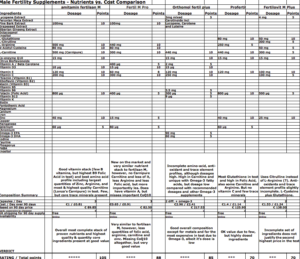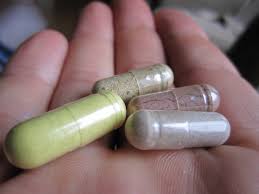Top Amino Acid Foods for Sperm Count
[tube]qcgNK3Pt8sE[/tube]
Having healthy, viable sperm is important if you are trying to have a baby. Men having trouble fathering a child may need a semen analysis. This test can help to determine the sperm health. It can also identify possible fertility problems.
One of the most common causes of poor fertility in men is a low sperm count. A healthy sperm count is 40 million sperm per millilitre of semen. There are also other considerations. These include sperm morphology and forward movement.
If the results of a semen analysis are less than optimal it doesn’t mean they won’t improve. There are still plenty of ways to naturally enhance sperm health. Certain amino acids can elevate sperm count, motility, and morphology. Increasing the availability of these amino acids can help to improve male fertility.
Boosting sperm count with amino acids
Diet plays a very important role in fertility. Certain foods can help to improve sperm parameters. This is due to the high concentration of specific amino acids. There are many amino acids involved in the production, development and maintenance of sperm. However, some are more important than others. Three amino acids that help to improve sperm count and other key semen parameters are:
These amino acids work to boost sperm production, improve motility, and morphology. Furthermore, they will also support overall health.
The benefits of increasing L-arginine intake
The body naturally produces L-arginine. However, at times this amino acid can be in short supply. This can be detrimental to reproductive health. Low levels of L-arginine can lead to erectile dysfunction, low sperm count, decreased sperm motility, and sperm morphological abnormalities.
Elevating L-arginine availability will increase blood flow to the reproductive organs. This makes it easier to develop and maintain erections. L-arginine is necessary for the production of nitric oxide, therefore indirectly facilitating healthy blood circulation and vessel dilation. Not only does this help to reduce any possible erectile dysfunction, it also improves nutrient supply to the developing sperm.
Many studies have confirmed that supplementation with L-arginine will boost sperm count 1,2. Forward sperm motility is also improved when regularly taking L-arginine supplements according to further studies3,4.
Improved motility can increase the likelihood that sperm can travel through the cervix to fertilise the egg. Current research indicates that L-arginine supplementation in conjunction with other important nutrients can significantly improve all semen parameters5.
Increasing the availability of L-arginine can be achieved by eating certain foods. Fish, red meat, poultry, and dairy products are particularly rich in this amino acid. Other non-animal sources include sesame seeds, peanuts, walnuts, pumpkin seeds, and soybeans. Grains such as quinoa, oats, and wheat germ are also good sources of L-arginine.
The benefits of increasing L- carnitine intake
Similar to L-arginine, L-carnitine is also a semi-essential amino acid. It plays a critical role in supporting the healthy production, maturation, and maintenance of sperm.
]
Without L-carnitine the sperm fail to form and develop properly within the testes. This amino acid has an essential role in the formation of the membrane that protects the sperm from oxidative stress. L-carnitine is also a energy source for sperm mitochondria, helping to propel sperm forward.
Many studies confirm that this amino acid is vital for sperm health. Supplementation with L-carnitine can boost sperm count, improve motility, and reduce abnormal spermatozoa development6,7’8’9.
Poultry, red meat, dairy products, and fish are some of the best food sources rich in L-carnitine. Good plant derived sources of this amino acid include asparagus, avocados, tempeh, wheat, and peanuts.
The benefits of increasing N-acetyl cysteine (NAC) intake
The amino acid L-cysteine has been modified to form NAC. This is a potent antioxidant. Not only does NAC help to protect cells from oxidative stress, it also boosts the production of other key antioxidants in the body, such as glutathione.
Supplementation with NAC will both protect sperm from free radicel damage and enhance overall sperm quality. Research has found that NAC can increase sperm count, sperm motility, and reduce oxidative stress responsible for sperm abnormalities 10,11,12.
Nut, soy, eggs, and poultry are all good natural sources of L-cysteine. Since NAC is a more powerful form of L-cysteine it’s often recommended to take a NAC supplement to enhance the positive health effects of this amino acid.
Why supplements can help sperm count
Boosting the intake of foods rich in amino acids that support healthy sperm can help to better support fertility. However, amino acids don’t work alone. They also require certain trace elements, minerals, and vitamins to fulfil their roles within the body. This is one of the reasons why fertility specialists and nutritionists will recommend supplements.
There are many different products available that are especially formulated to support male reproductive health. These supplements will contain a range of amino acids, vitamins, minerals, and trace elements that can enhance sperm count, improve motility, and promote normal sperm development.
Before selecting a male fertility supplement make sure you consult a medical professional. They can help to recommend a suitable product based on your individual circumstances.
Other ways to enhance sperm count
While a healthy diet and nutrient supplements can help to boost virility and fertility, there are also other ways to support better reproductive health. Factors such as avoiding stress, exercising daily, no smoking, and limiting alcohol intake all support better male fertility.
References
- “Aydin, S. et.al. (1995). The role of arginine, indomethacin and kallikrein in the treatment of oligoasthenospermia. International Urology and Nephrology. Volume 27, Issue 2 (pp. 199-202).” ↩
- “Schachter, A., et al. (1973). Treatment of Oligospermia with the amino acid L-Arginine; Journal of Urology. Volume 110, Issue 3, (pp. 310-13).” ↩
- “Scibona, M. et.al. (1994). L-arginine and male infertility. The Italian Journal of Urology and Nephrology. Volume 46, Issue 4, (pp. 251-3).” ↩
- “Morgante, G. et. al. (2010). Treatment with carnitine, acetyl carnitine, L-arginine, and ginseng improves sperm motility and sexual health in men with asthenospermia. The Italian Journal of Urology and Nephrology. Volume 62, Issue 3, (pp. 213-8).” ↩
- “Stanislavov, R. and Rohdewald, P. (2014). Sperm quality in men is improved by supplementation with a combination of L-arginine, L-citrullin, roburines and Pycnogenal. The Italian Journal of Urology and Nephrology. Volume 66, Issue 4, (pp. 217-23).” ↩
- “Wang, Y, et al. (2010). L-carnitine: safe and effective for asthenozoospermia. National Journal of Andrology. Volume 16, Issue 5, (pp. 420-2).” ↩
- “Costa, M, et al. (1994). L-carnitine in the idiopathic asthenozoospermia: a multicenter study. Andrologia. Volume 26, Issue 3, (pp.155-9).” ↩
- “Lenzi, A. et al., 2003. Use of carnitine therapy in selected cases of male factor infertility: a double-blind crossover trial. Fertility and Sterility. Volume 79, Issue 2, (pp. 292-300).” ↩
- “Garolla, A. et al. (2005). Oral carnitine supplementation increases sperm motility in asthenozoospermic men with normal sperm phospholipid hydroperoxide glutathione peroxidase levels. Fertility and Sterility. Volume 83, Issue 2, (pp. 355-61.)”. ↩
- “Oeda, T. et. al. (1997). Scavenging effect of N-acetyl-L-cysteine against reactive oxygen species in human semen: a possible therapeutic modality for male factor infertility? Andrologia. Volume 29, Issue 3, (pp. 125-31).” ↩
- “Ciftci, H. et.al. (2009). Effects of N-acetylcysteine on semen parameters and oxidative/antioxidant status. Urology. Volume 74, Issue 1, (pp. 73-6).” ↩
- “Safarinejad, M and Safarinejad, S. (2009). Efficacy of selenium and/or N-acetyl-cysteine for improving semen parameters in infertile men: a double-blind, placebo controlled, randomized study. The Journal of Urology. Volume 18, Issue 2, (pp. 741-51).” ↩






